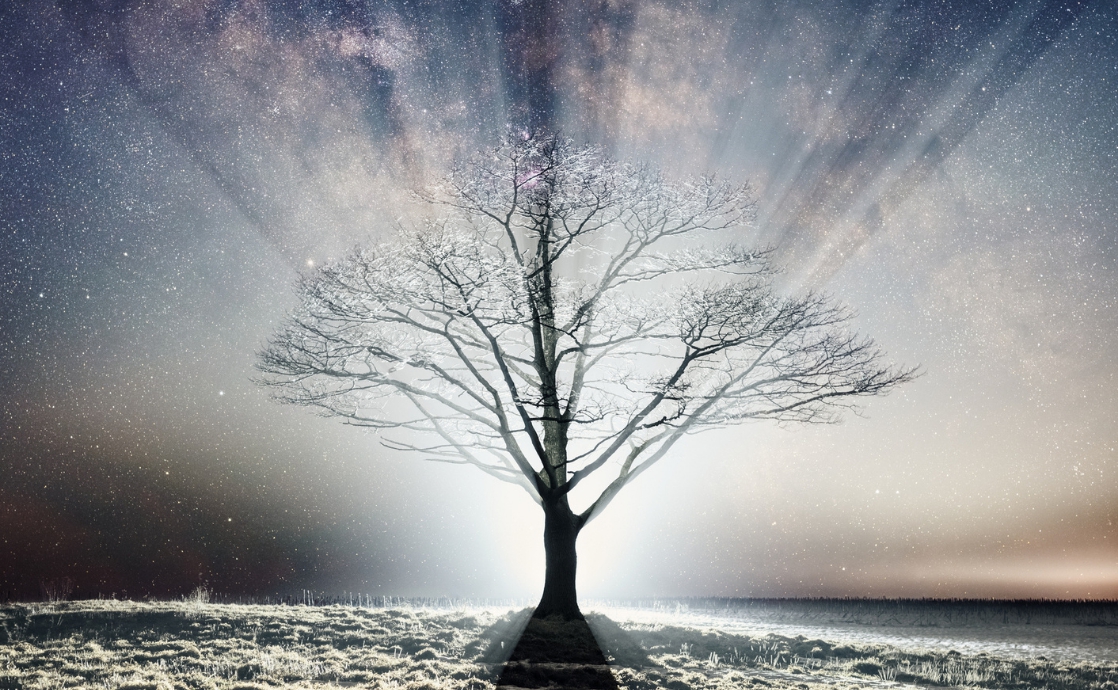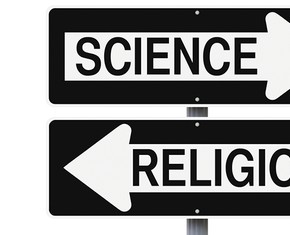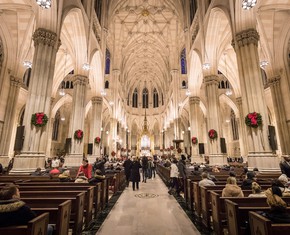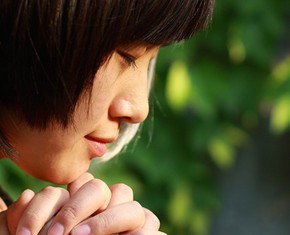The views expressed in our content reflect individual perspectives and do not represent the authoritative views of the Baha'i Faith.
As we evolve our own consciousness from a focus on the self to a love of humanity, so too does religion evolve through interconnected, cumulative sacred traditions that expand with each new spiritual cycle.
This evolutionary unfolding of religion can be viewed metaphorically as one tree with many branches. The writings of Shoghi Effendi, the Guardian of the Baha’i Faith, describe it this way:
Just as the organic evolution of mankind has been slow and gradual, involving successively wider circles of unity, so has the light God, at various stages in the evolution of religion, reflected in successive Dispensations, been slow and progressive. Indeed, the measure of Divine Revelation, in every age, has contributed to the degree of social progress achieved in that age by a constantly evolving humanity … In this Revelation, the distinguishing feature is the consciousness of the oneness of mankind.
RELATED: Why Do Religions Think They’re the Final Religion?
The one religion we live by has its origin in one changeless and eternal Source. Diverse streams of spiritual wisdom have flowed from one Creator, each having the same connection to the Divine, offering the seeker of truth a socially determined variation on universal truth. Each has its own practices, assisting the common process of transformation, leading to liberation from the transitory, and an enlightenment recognizing the unity of the whole.
A Single Tree, A Mighty Trunk, Many Branches
The oneness of Divinity becomes even more evident in viewing the process of the evolution of religion as a single tree growing new branches with each new spiritual cycle. From this sacred tree has flourished the Indigenous traditions branches, the “Abrahamic” branches, and the “Dharmic” branches.
The Indigenous branches consist of all the ancient and modern Native spiritual traditions throughout the world. They understand this tree as sacred, put here by the Creator of all things, the Great Mystery. It symbolizes unity, connectedness, and eternity, and is believed to be the tree that will gradually gather all the people of the earth under it, as in the Lakota tradition of The Story of the Sacred Tree.
From earliest times, spiritual beings, or messengers, have given sacred instructions for sustainable living to peoples of all the Nations. Usually remembered only as the Ancient Ones, a notable exception is The Peacemaker, who brought principles of peace, equity, justice, and unity to the warring tribes of the Great Lakes region in what is now upstate New York, unifying them into the Six Nations, also known as the Haudenosaunee or the Iroquois Confederacy.
The Abrahamic branches are made up of the line of prophets, or founders of religions, whose direct lineage is traced back to Abraham. This line includes Moses (through Isaac), Jesus (through Isaac), Muhammad (through Ishmael), and Baha’u’llah (through Sarah and Keturah). Each of the religions of these prophets and holy messengers share the common belief that the Creator guides humanity through revealed teachings to the prophets up to and including those in their own scripture.
The Daoist branches include Confucianism, Daoism, and Shinto, and share views of the universe as a living organic whole, following the Way of the Sages.
The Dharmic branches consist of the religions of the prophets Krishna, Buddha, and Zoroaster, as well as other belief systems originating on the Indian subcontinent, including Jainism and Sikhism. These traditions share certain key spiritual concepts such as various forms or interpretations of karma, dharma, samsara, moksha, and yoga.
Seeing the Single Tree
Visualizing religion as a single tree allows us to behold an ancient and ongoing knowledge system characterized by an organic process of growth, similar to all nature, having its own seasons of maturation, decline, and renewal, with new shoots, branches, and leaves always still part of the same tree.
Many scientists, philosophers, and social scientists also visualize religion as a tree of many branches, periodically renewed by one Source. In a speech he gave in the United States in 1912, Abdu’l-Baha explained the fundamental concept this way: “Reality is not multiple; it is one. Therefore, the foundations of the religious systems are one because they all proceed from the indivisible reality.”
Each spiritual cycle releases a pervasive force into the world. That force, though latent until activated by human endeavors, opens the hearts and minds of artists, scientists, and others, transforming individuals and civilization alike. These spiritual forces consist of patterned energy designed for individual spiritual growth, society-building, regulating the world of humanity, and instilling into the entire human race the capacity to achieve its destined oneness, unity, and peace.
RELATED: Why Did So Many Major Religions Begin in the East?
As centuries pass, society recognizes the transforming power causing this leap in consciousness and continues to draw from the release of spiritual energies as the cycle runs it natural course. In a few millennia of these elongated cycles, with each new revelation, humanity has seen its circles of unity expand, successively, to where we are now – witnessing an emerging global consciousness.
Throughout history, the Creator’s messengers have always had the common objective of preparing human consciousness gradually, by stages, to recognize the oneness of humanity. Each cycle has initiated a leap toward this, yet there is no essential difference between any of these messengers, except as they have responded to the changing needs of their respective times.
This evolutionary perspective on the unfolding of religion explains the vast changes and differences that have occurred from one spiritual cycle to another. It enables us to see that the diversity of religious customs, practice, and even doctrine can be compared to the diversity in dress, healing methods, hygiene, dietary preferences, and economic activity between cultural, ethnic, and national groups. The next essay in this series will explore how religion can be re-visioned in light of this timely principle.
Adapted from Robert Atkinson’s The Story of Our Time: From Duality to Interconnectedness to Oneness, Sacred Stories Publishing: https://amzn.to/3jK8lHJ
You May Also Like
Comments

















‘Abdu’l-Bahá, Paris Talks, p. 59